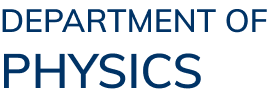Abstract
Bacterial and mammalian cells walls are adapted to very different challenges, but have some construction principles in common. Both organize many sensory modalities, import and export, and employ a lipid bilayer as a barrier for macromolecules and ions, and both use a polymer network for mechanical resistance. The bacterial cell wall serves as a tough shell, containing turgor pressures around 1 atm in gram-negative bacteria and up to 20 atm in gram positive bacteria. Mechanical stretch stiffness and shape maintenance are provided by the covalently linked peptidoglycan layer that is enveloping the inner plasma membrane. We have developed an AFM-based method to track turgor pressure in living cells as well as cell wall response to deformation and pressure, and we model the PG layer as an anisotropic elastic network composed of two types of nonlinear springs (glycans and oligopeptides). Mammalian cells can, at most, support a fraction of an atmosphere of turgor pressure. Mechanical response is dominated by the internal actin cortex that is activated by myosin motors and rapidly adapts to and drives cell shape changes. We use dual optical traps to mechanically probe suspended cells and investigate cortex mechanics by drug interference and osmotic challenges.
Christoph Schmidt’s interests are in experimental soft matter physics and biophysics. His group, at the moment, works on active materials, polymer networks, bacterial and animal cell mechanics and tissue mechanics, as well as on mechanosensory processes in biology. He started his academic career as a postdoc at Harvard and the Rowland Institute for Science in Boston, achieved tenure in the Physics Department and the Biophysics Research Division of the University of Michigan, and then moved to the Vrije Universiteit Amsterdam in the Netherlands. After seven years in Amsterdam he followed a call to head the Third Institute of Physics of the University of Göttingen in Germany. Recently he joined the Physics Department of Duke University and co-founded the Duke Soft Matter Center as part of the Duke Materials Initiative. Christoph Schmidt is a Fellow of the American Physical Society and a Member of the Göttingen Academy of Sciences and Humanities.
